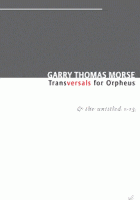
Every Inadequate Name by Nick Thran
Reviewed by Alessandro Porco In his debut collection of poetry, Every Inadequate Name, Nick Thran’s is at its best when his poem’s speaker’s emotional transparency is honest enough to admit complicity; he’s flawed and guilty, young and frivolous — that is to say, too human for living yet just perfect for poetry. Conversely, the collection is at its worst when the poem’s speaker participates only in his capacity as a moralizing spectator, resulting in off-putting poems quietly dictated from the sidelines. Perhaps these are the inevitable two faces of a romantic like Thran. Where one goes, the other follows. Surely, there are other poems that fall somewhere in between, but they are for some other review to take up and








